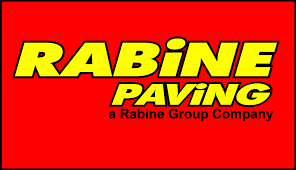Tennessee Tennessee Construction General Permit (CGP) Course
Course Description
The 2016 Tennessee Construction General Permit (CGP) course covers all areas of the State of Tennessee.The full title of this permit is the General NPDES Permit for Discharges of Stormwater Associated with Construction Activities.
Operators of point source discharges of stormwater associated with construction activities into waters of the State of Tennessee are authorized to discharge stormwater associated with construction activities under the following:
- The Tennessee Water Quality Control Act of 1977; and
- The authorization by the U.S. EPA under the Federal Water Pollution Control Act as amended by the Clean Water Act; and
- This includes special requirements - the Discharges into Waters with Unavailable Parameters or Exceptional Tennessee Waters of this general permit;
- This is in accordance with the permit monitoring and reporting requirements, effluent limitations, and other provisions as set forth in this permit, from the subject outfalls to waters of the State of Tennessee.
- This permit authorizes point source discharges of stormwater from construction activities that result in soil disturbances of ONE (1) or MORE acres.
- Soil disturbances of LESS than ONE (1) acre are required to obtain authorization under this permit if construction activities are part of a larger common plan of development or sale that comprises at least ONE (1) acre of cumulative land disturbance.
- Construction activities include: clearing, grading, filling and excavating.
- ONE (1) or MORE site operators MUST maintain coverage under this permit for all portions of a site that have not been permanently stabilized.
- The director has determined that the stormwater discharge from a site is causing, contributing to, or is likely to contribute to a violation of a state water quality standard;
- The director has determined that the stormwater discharge is, or is likely to be a significant contributor of pollutants to waters of the state; or
- Changes in state or federal rules require sites of LESS than ONE (1) acre that are not part of a larger common plan of development or sale to obtain a stormwater permit.
- The history of the Clean Water Act and the National Pollutant Discharge Elimination System (NPDES) Program;
- The terms, applicability criteria, regulations, permit coverage and compliance required under the Tennessee CGP;
- Who must sign and submit the Notice of Intent (NOI);
- The purpose and components of the Stormwater Pollution Prevention Plan (SWPPP);
- Erosion Prevention and Sediment Control (EPSC) requirements including stabilization and structural practices;
- Stormwater management, maintenance, inspections, pollution prevention measures and Total Maximum Daily Loads (TMDLs);
- Effluent guidelines including water quality riparian buffer zone requirements, dewatering, and prohibited discharges;
- Special conditions, management practices and non-numeric limitations;
- The termination process and the Notice of Termination (NOT) certification.
The following stormwater discharges associated with construction activities include the following:
- This permit authorizes point source discharges of stormwater from construction activities that result in soil disturbances of ONE (1) or MORE acres.
- Soil disturbances of LESS than ONE (1) acre are required to obtain authorization under this permit if construction activities are part of a larger common plan of development or sale that comprises at least ONE (1) acre of cumulative land disturbance.
- Construction activities include: clearing, grading, filling and excavating.
- ONE (1) or MORE site operators MUST maintain coverage under this permit for all portions of a site that have not been permanently stabilized.
Projects of LESS than ONE (1) acre of total land disturbance may also be required to obtain authorization under this permit if:
- The director has determined that the stormwater discharge from a site is causing, contributing to, or is likely to contribute to a violation of a state water quality standard;
- The director has determined that the stormwater discharge is, or is likely to be a significant contributor of pollutants to waters of the state; or
- Changes in state or federal rules require sites of LESS than ONE (1) acre that are not part of a larger common plan of development or sale to obtain a stormwater permit.
I have more confidence...
The course was very good at speaking of topics that can get quite technical in a way that most would find understandable. The topics within the course are very relevant to the project I am on and now I feel like I have more confidence with being the environmental compliant inspector. Who can ask for much more than that!?! No complaints.
John K.
Committed Clients:










































































































